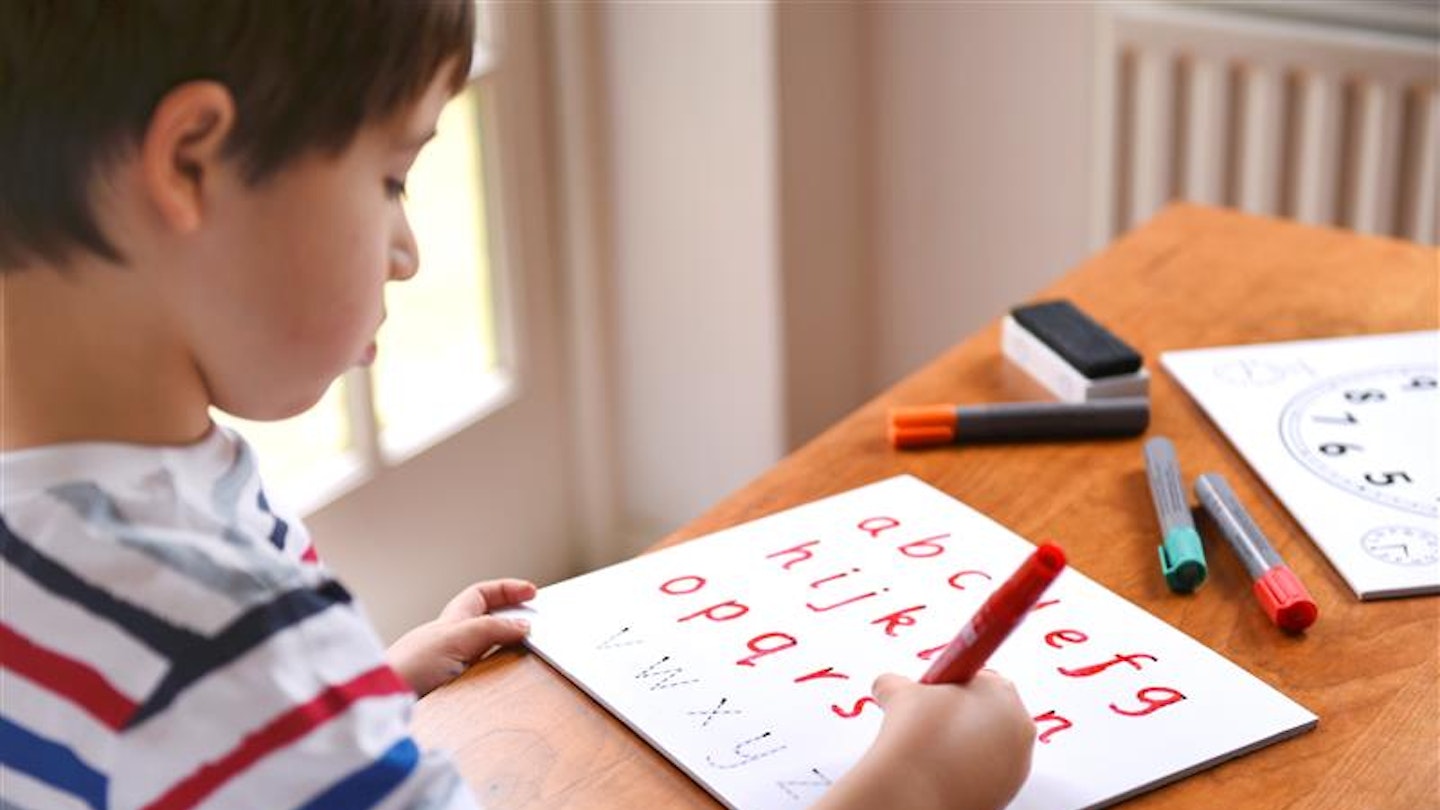As many as one in five people are dyslexic, which is 20 per cent of the global population, and over one billion people. Yet right now, education systems around the world aren’t spotting, supporting or empowering dyslexic children. Only 20 per cent of dyslexic students are identified at school, which means that 80 per cent are being left to ‘muddle through’, feeling that school, and them, don’t quite fit.
If you think your child might be dyslexic, or if you’re an adult reading this and wondering if you may be too, know that it’s not something to hide or be embarrassed of – it’s a superpower. So many of the world’s most incredible thinkers, sports stars, musicians, writers, actors and entrepreneurs are dyslexics – from Albert Einstein to John Lennon, Keira Knightley, David Beckham, Agatha Christie and Steve Jobs.
Dyslexic minds are naturally curious, highly creative, and with an ability to unconventionally connect the dots and think laterally. We have strengths in areas like creativity, problem solving, empathy and communication.
80% of dyslexic children aren’t diagnosed at school
Dyslexia does come with its challenges in ‘traditional’ learning and in the tests used to ‘benchmark’ students (and, later, employees). I’m dyslexic and, looking back at my school reports, I was a classic dyslexic, but my first school didn’t spot it. Instead, I was a ‘must try harder’ ‘quiet girl’ who HATED school because I felt like a failure. When I failed entrance exams aged nine, I was sent to a new school, which was mainstream but one that understood and embraced dyslexia, and in a matter of weeks my life was totally transformed. This transformation was made possible by teachers who were trained to spot and support us, and who focused on dyslexic strengths. It was that simple.
Fast forward 30+ years and my early school nightmares came back to haunt me. My son Ted was a happy-go-lucky, creative little chap... until he started school at the age of four. The same challenges I had experienced were happening to Ted, but much worse.
I was genuinely shocked that after all that time his teachers still didn’t know how to spot and support his obvious dyslexic struggles or his amazing dyslexic strengths. I set about trying to change things and our campaigning led to the UK Government Review of Dyslexia and to starting the charity Made By Dyslexia.
What is dyslexia?
Dyslexia is a genetic difference in an individual’s ability to learn and process information. As a result, dyslexic individuals have differing abilities. Generally, a dyslexic cognitive profile will be uneven when compared to a neurotypical cognitive profile. In other words, dyslexic individuals really do think differently. Traditional benchmarking disadvantages dyslexics, measuring them against the very things they find challenging.
Identifying dyslexia
Dyslexia can be identified at five years of age or earlier, which is when many dyslexic kids show signs. The earlier it is discovered and supported, the sooner dyslexic kids catch up and keep up, as the adjustments and accommodations that come with identification are crucial for our success. In fact, the ‘label’ is vital for our own self-understanding at any age and studies show that unidentified dyslexia can cause low self-esteem in childhood and into adult life.
Key indicators a child is dyslexic:
• Struggling to learn to read and, once they have learned, needing to read things several times to get the meaning.
• Poor spelling, punctuation and grammar as well as difficulties learning spelling.
• Difficulty learning by rote, so memorising facts for tests and learning times tables.
• Having lots of great ideas and knowing all the answers but having difficulty getting their thoughts down on paper.
• A mismatch in what they seem capable of and the written work they produce is a strong indicator of dyslexia.
If you think your child may be dyslexic, take a free dyslexic thinking test here.
How to support and empower dyslexic children
The most important thing we can do for our dyslexic children is to find out what they are extraordinarily good at and are passionate about, and help them to do lots of it, because therein lies the formula for unleashing their dyslexic superpowers.
I have seen the same ‘success formula’ in thousands of dyslexic people, young and old. It’s the formula I encouraged with my own children, which has led them into fulfilling careers too. Here's how:
• Think about what your child loves to do and would do for hours, if left to their own devices. These are usually their dyslexic thinking skills.
• Find out what they are passionate about, what do they love to talk about, watch or learn about.
• Encourage them to do both of the above, lots and lots. Because Skill + Practice + Passion = Superpower.
• Easy-to-spot strengths include sport, art, music, dancing. But empathy, kindness, imagining, listening, questioning are all valuable superpowers too.
• Acknowledge their expertise. Dyslexics often don’t realise how good they are at these things, so may not recognise them as their Superpowers.
Helping your child discover their dyslexic superpowers will set them up with the confidence, self-belief and passion they need to succeed, both at school and, as they grow up, in the world.
It’s time to value dyslexic thinking and the vital role it will play in all our futures. Helping your child discover their dyslexic superpowers will set them up with the confidence, self-belief and passion they need to succeed, both at school and, as they grow up, in the workplace.
Kate Griggs is the founder and CEO of global charity Made By Dyslexia and author of dyslexia guide This is Dyslexia and children’s book Xtraordinary People: Made By Dyslexia.
READ MORE: Victoria Beckham Gets Real About Her Family's Battle With Dyslexia
